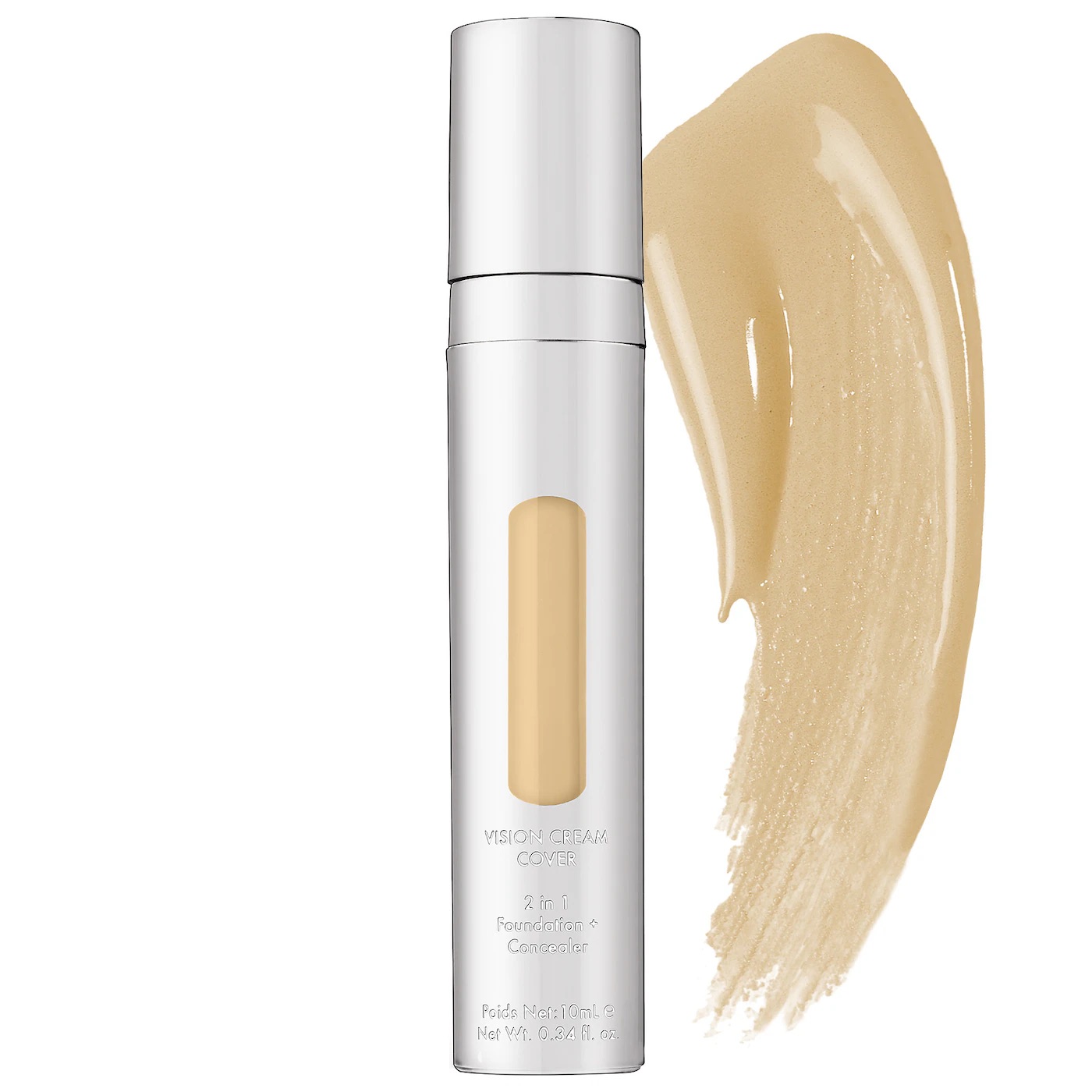Does Foundation Go on Before or After Concealer? A Makeup Artist Is Here With the Answer
Foundation and concealer exist to create your desired complexion. Play with each to draw attention to your cheekbones, wake up your under eyes, camouflage hyperpigmentation, and so much more. But to do all of this, do you apply foundation before or after concealer? According to Emily Amick, a celebrity makeup artist in New York City, it truly comes down to personal preference and the look you're trying to create.
"There aren't any rules to any of this! Experimenting with different techniques to get the look you want to achieve is the best way to find the 'right' way for you," says Amick. "There really is no right or wrong answer here. It is 100 percent about your preference, habits, and how you feel most comfortable doing your makeup."
So take a deep breath and know you can't go wrong. But don't worry, if you want a little more guidance, we're not gonna leave you with the deeply unsatisfying response of "Do you!" Amick is here to break down the pros and cons of each method.
How to figure out if you should apply foundation before or after concealer
What's the difference between foundation and concealer?
Foundation and concealer are both complexion products, but play different roles in your routine. Foundation is typically thicker than concealer and provides heavier coverage. When choosing a foundation shade, you choose one that matches your skin tone. When applied all over, a medium-to-high-coverage foundation can provide a somewhat flat canvas, as those with higher coverage can blur out your skin's natural dimension. Skin tints and light-coverage foundations add pigment to the skin that evens the complexion while still allowing your skin's natural depth to shine through.
{{post.sponsorText}}
Concealer, on the other hand, is essentially a jack of all trades. Use a shade a bit lighter than your skin to brighten up the high points of your face (where the sun hits), like under the eyes, the middle of the forehead, the bridge of the nose, and-or the center of the chin. Use a shade deeper than your skin to add depth to the lower points of your face (think shadows) like your cheekbones, jawline, and forehead. Use one that's the same shade as your skin to cover up dark spots, pimples, and more.
While there are so many options for what you can do with each, you can do as much or as little as you want. It's all about playing and having fun!
Pros and cons of applying foundation first
This is Amick's fave method of application, and it's also the most beginner-friendly of the two.
"Foundation first is my preferred method, only because I find you often need less concealer once you see how well the foundation covers and evens out the skin," she says. "I'm a less-is-more gal, so I think if you want a more natural look it's a good way to prevent overdoing it on the coverage."
When applying foundation first, you're often committing to a full face of makeup. Because concealer is meant to be applied only in certain spots, you may find that applying it first opens you up to applying less (or no) foundation at all for a super natural look—more on that in the next section.
To put on foundation, use a brush or damp sponge to apply a thin layer of foundation all over your face and neck and build from there if you'd like. Right now, I'm head-over-heels in love with the Laura Mercier Real Flawless Weightless Perfecting Foundation ($48). The finish is as if a skin tint and a foundation had a baby, offering lightweight, buildable coverage while letting my skin breathe.
Pros and cons of applying concealer first
"Concealer first can be a great way to 'underpaint' along with cream contour, blush, and bronzer," says Amick Underpainting is a technique that has been around for centuries but recently gained popularity on TikTok.
"Underpainting is a classic makeup technique where you create structure and depth on the face before you do foundation," says Mary Irwin, a celebrity makeup artist who has been in the industry for nearly two decades. "It's a very old technique first used by painters, particularly oil painters! It adds a lot of depth to the skin and can look more natural than regular techniques."
Amick says that this method allows you to "really sculpt and highlight the areas you want with concealer and then blur and blend by using foundation on top." This helps to create a really subtle lit-from-within radiance.
"I'm also a huge fan of using concealer only and foregoing foundation all together," says Amick. "Often I find that if I conceal in all the right places, I don't need foundation at all which is a great way of giving your skin a little bit of a break while still looking bright and fresh!"
Apply your concealer with a brush or the applicator tip and blend it out with a damp sponge, a brush, or your fingers. Amick is a huge fan of the Danessa Myricks Vision Cream Cover ($22). It's a full-coverage concealer-foundation hybrid and a little bit goes a LONG way. Apply just a little where you want it. If you want something sheerer, my go-to is always the Kosas Revealer Concealer ($30). It's lightweight, medium-coverage, and super creamy.
Loading More Posts...


